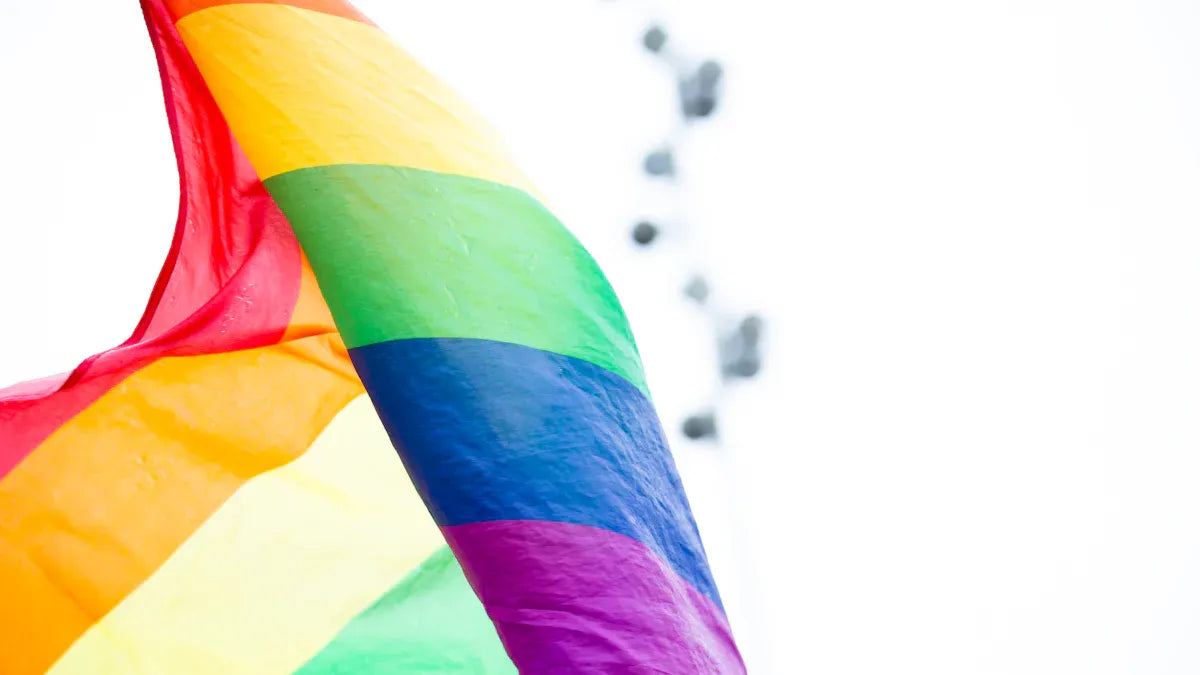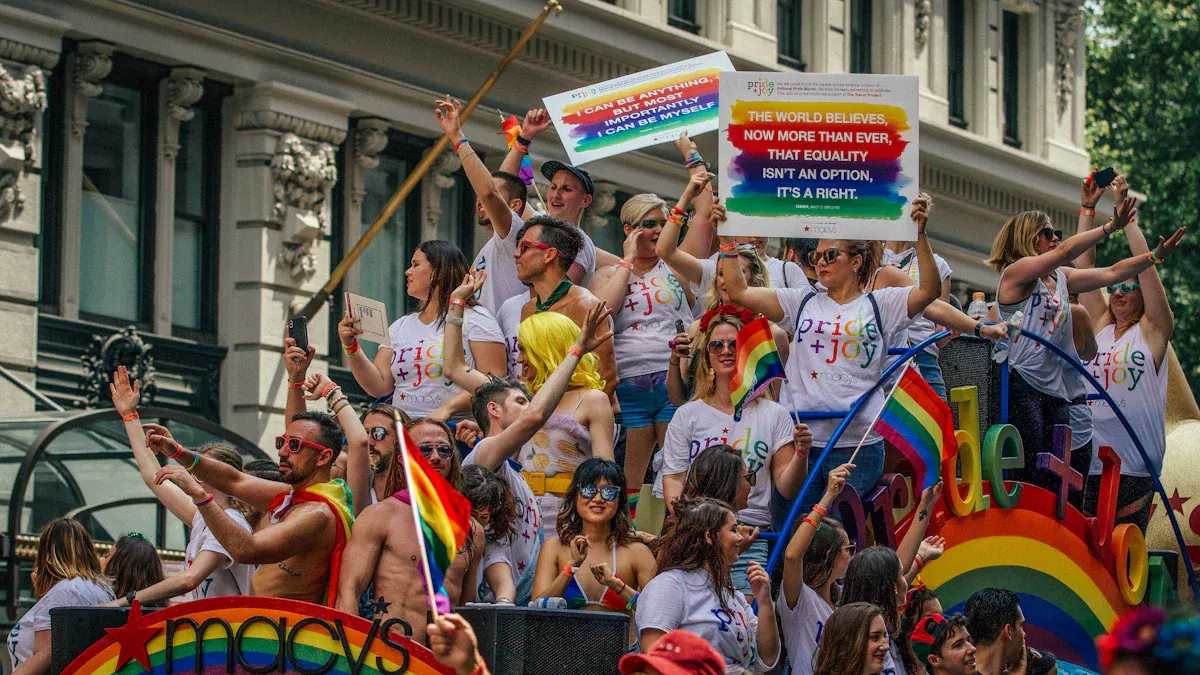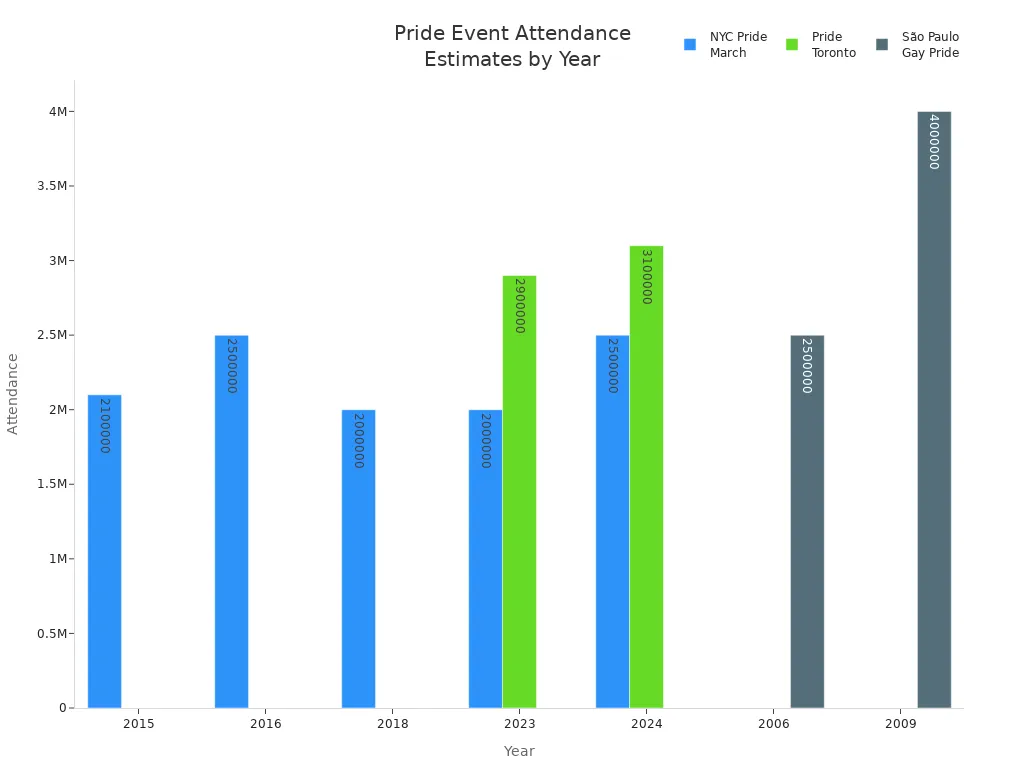
How the Definition of Gay Has Evolved
In 2025, the word gay usually means a person who likes people of the same sex. Big dictionaries, like the Oxford English Dictionary, agree with this meaning. They also say it is used for both men and women. You might see that language changes over time. The meaning of gay has changed as society grows. This shows how people learn new things about identity.
Key Takeaways
-
The word 'gay' now means a person who likes the same sex. It can be used for both men and women.
-
Words like 'lesbian' and 'queer' have their own meanings and stories. It is important to respect how people want to be called.
-
The word 'gay' used to mean happy. Over many years, it changed to mean same-sex attraction.
-
Younger people use more labels for themselves. They feel more free to show who they are than older people.
-
Laws and politics still make life hard for LGBTQ+ people. This is why events like Pride help give support and let people be seen.
Meaning of Gay
Definition in 2025
When people say gay in 2025, they mean someone who likes people of the same sex. This is the main meaning in big dictionaries and trusted places. Groups like The Lesbian, Gay, Bisexual & Transgender Community Center say gay is for people who have strong feelings for others of the same sex. GLAAD says gay is an adjective for people with these feelings. Some women like to use the word "lesbian," but many still use gay for themselves. These groups agree that being gay is about who you are drawn to over time, not just one moment.
Note: The word gay is for both men and women, but some women pick "lesbian" for their identity.
Historical Roots
It is interesting that gay did not always mean what it does now. Long ago, people used gay to talk about someone or something happy or bright. For example, someone might say, "The party was very gay," which meant it was fun and lively. This meaning lasted for many years. In the 1900s, the meaning started to change. By the 1960s, people used gay to talk about same-sex attraction. This change happened as more people talked about sexual orientation and identity. Today, gay mostly means someone who loves or likes people of the same sex.
Gay and Related Terms
Distinctions
People use different words to talk about who they are. Each word has its own story and meaning. Here is a table that shows how these words are not the same:
|
Term |
Definition (2025) |
Notes on Usage and History |
|---|---|---|
|
Gay |
A person attracted to the same sex, often men attracted to men; also used broadly as a generic term for gay and lesbian sexuality. |
Historically evolved from meaning 'joyful' to a euphemism for homosexual; widely adopted during mid-20th century gay liberation movements. |
|
Lesbian |
A woman who is attracted emotionally, romantically, and/or sexually to other women. |
More specific than 'gay' in terms of gender; often used exclusively by women attracted to women. |
|
Queer |
An umbrella term for sexual and gender minorities who do not fit traditional categories; ambiguous and inclusive, allowing fluidity beyond rigid labels. |
Originally derogatory, reclaimed by many LGBTQ+ youth; preferred by some for its flexibility and avoidance of strict labels. |
Gay can mean both men and women who like the same sex. Lesbian is only for women who love other women. Queer is a bigger word. It is for people who do not want to use strict labels or feel their identity is more open.
Tip: If you do not know which word to use, you can ask the person. It is good to respect what someone wants to be called. This helps everyone feel welcome.
Overlaps in LGBTQ+
Sometimes these words can mean similar things. Here are some ways this happens:
-
Gay is sometimes used for anyone who likes the same sex, men or women.
-
Lesbian is just for women, but some women also use gay for themselves.
-
Queer is for many people, like those who are gay, lesbian, bisexual, transgender, or do not fit in one group.
-
People may face different problems because of their gender or race, not just who they love.
-
LGBTQ+ groups talk about intersectionality. This means your identity can be about your race, gender, and other things, not just who you love.
LGBTQ+ groups have people from many places and backgrounds. Some people feel better when all parts of who they are get noticed. This can be their race, gender, or sexuality. Groups want everyone to learn about these overlaps. This makes the community fair and friendly for all.
Social Impact

Generational Views
People from different ages see the word gay in different ways. Young people use more words to talk about who they are. They feel more open about their identity. Older people often use labels that do not change. The table below shows how each age group identifies in the LGBTQ+ community:
|
Generation |
LGBTQ+ Identification Rate |
Most Common Identity Among LGBTQ+ Individuals |
Gender Differences in Identification |
|---|---|---|---|
|
Generation Z |
>20% |
Bisexuality (especially among women) |
28.5% women vs. 10.6% men identify LGBTQ+; bisexuality most common among women; men equally likely bisexual or gay |
|
Millennials |
~10% |
Bisexuality (women), bisexual or gay (men) |
12.4% women vs. 5.4% men identify LGBTQ+; bisexuality common among women; men split between bisexual and gay |
|
Generation X |
<5% |
Gay or lesbian more common than bisexual |
N/A |
|
Baby Boomers |
~2% |
Gay or lesbian more common than bisexual |
N/A |
|
Silent Generation |
~1% |
Gay or lesbian more common than bisexual |
N/A |
Young people, especially girls, are more likely to say they are bisexual. Many young people do not want to use just gay or lesbian. They like words that show they can change. Older people feel better with labels that stay the same. This change shows that society is learning to accept more kinds of identity.
Political and Legal Challenges
In 2025, there are new political and legal problems. Project 2025 brings changes that hurt LGBTQ+ rights. Here are some main problems:
-
Project 2025 tries to take away protections for sexual orientation and gender identity in federal laws.
-
It wants to make workplace protections smaller, only about hiring and firing.
-
The plan says sex discrimination is only about sex at birth.
-
It wants to stop federal money for gender-affirming care and take away coverage from Medicare and Medicaid.
-
Project 2025 makes Title IX protections smaller and leaves out sexual orientation and gender identity.
-
Some executive orders ban transgender people from the military and close groups that help with gender fairness.
-
The plan stops collecting data on gender identity, so it is harder to track hate crimes and unfair treatment.
Some new laws and orders try to take away rights, but courts and Congress can fight these changes. Some things change fast, but others take longer. These legal fights affect many people’s lives every day.
Pride events are still important for being seen and speaking up. Millions of people go to events like NYC Pride, WorldPride, and São Paulo Gay Pride Parade. These events help people feel noticed and supported. They also teach others about being fair and kind.

Pride events help people feel like they belong. They also help push for change and remind everyone that the fight for rights is not over.
You can see how the meaning of words changes as society grows. Language shapes how you express yourself and helps you find others who share your identity. LGBTQ+ communities use special words and styles to build trust and support. Experts say these speech patterns help people feel included and strong. In the future, you may see even more new terms and ideas. You play a part in making the world more open and fair for everyone.
FAQ
What does "gay" mean today?
You use "gay" to describe someone who feels romantic or sexual attraction to people of the same sex. Most people use it for men, but many women also use it. The word shows who you love or feel close to.
Can women call themselves gay?
Yes! Many women use "gay" to describe themselves. Some prefer "lesbian," but both words work. You should always respect what someone wants to be called.
How is "queer" different from "gay"?
"Queer" covers a wider range of identities. You might use "queer" if you do not fit into just one label. "Gay" usually means same-sex attraction, but "queer" can mean many things in the LGBTQ+ community.
Why do words about identity change?
Words change as people learn more about themselves and others. You see new words when society grows and becomes more accepting. Language helps you express who you are and find support.





